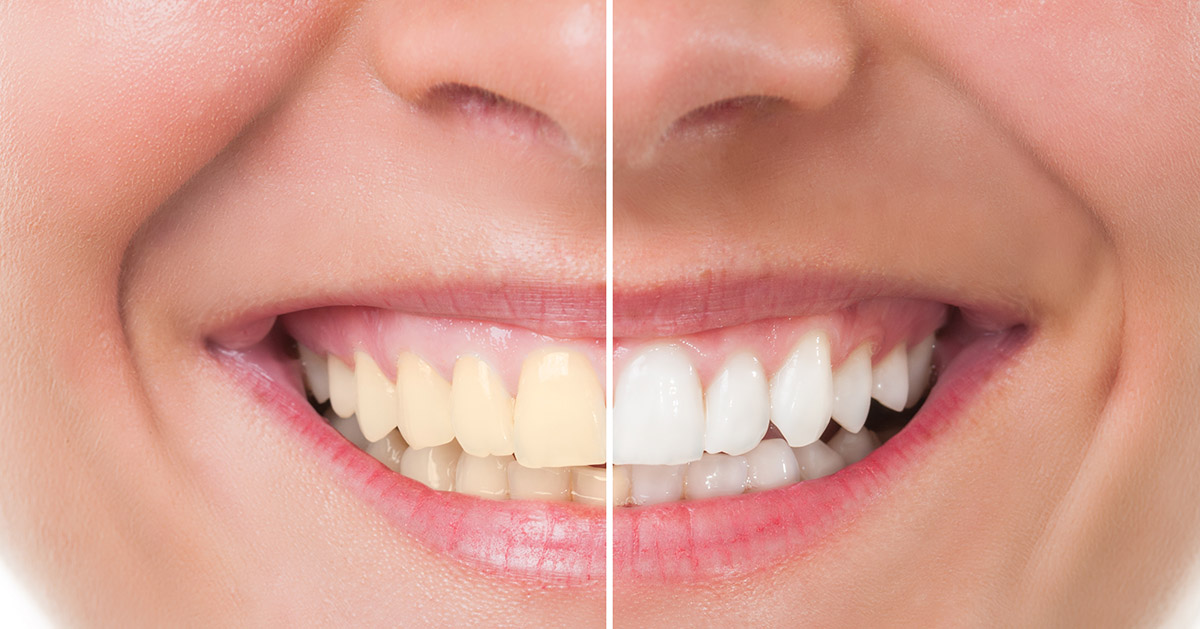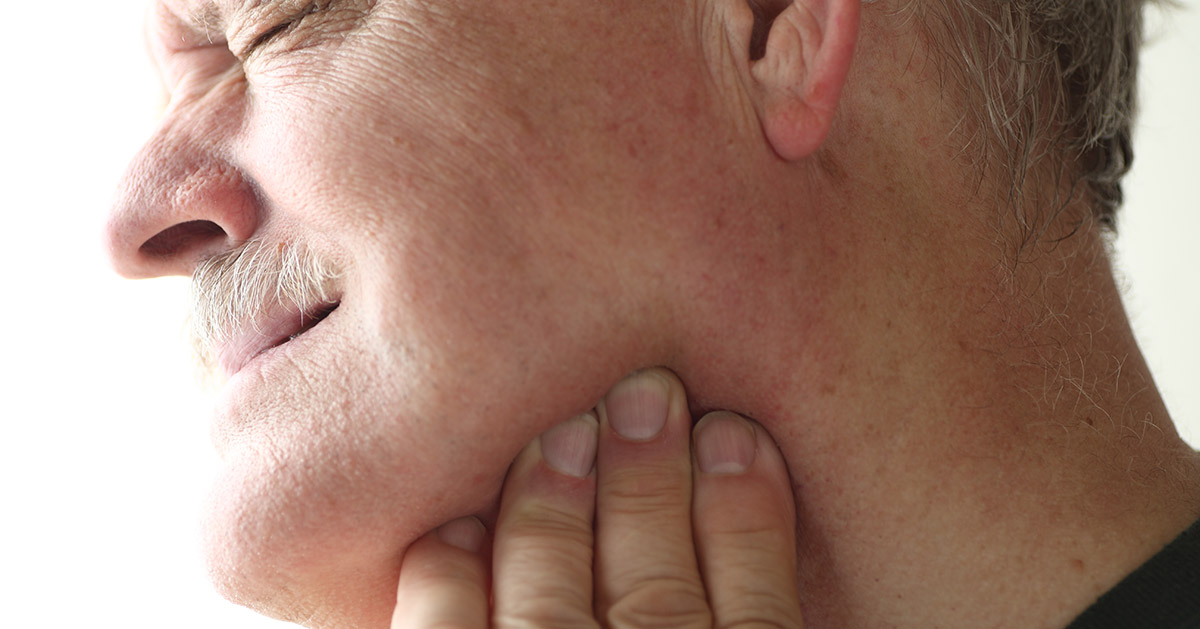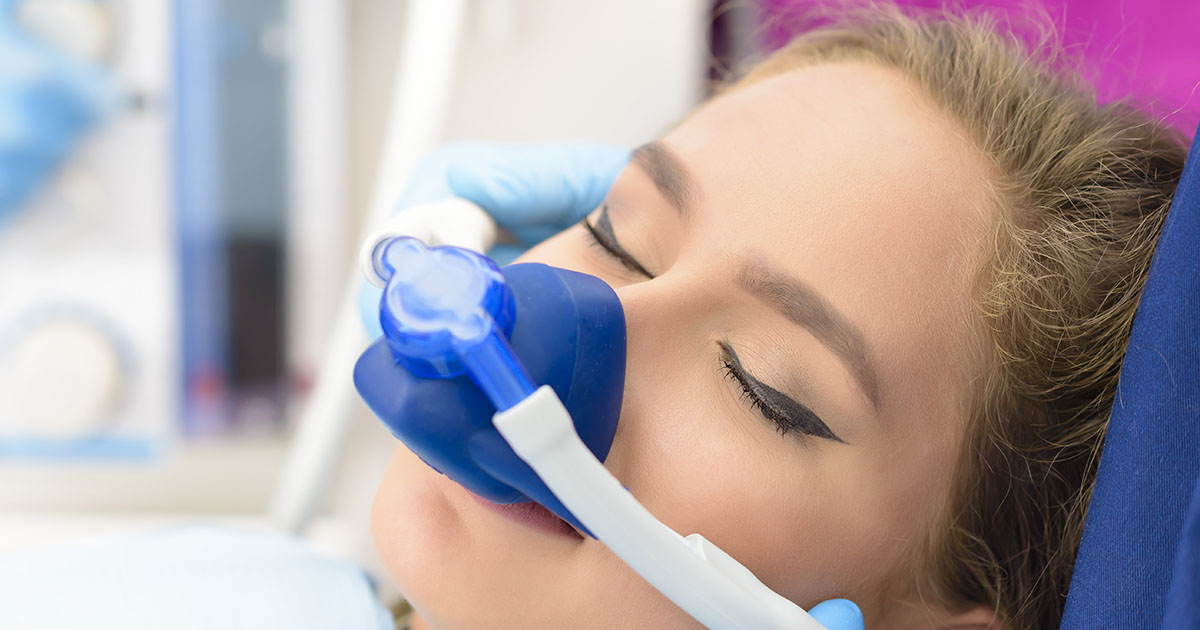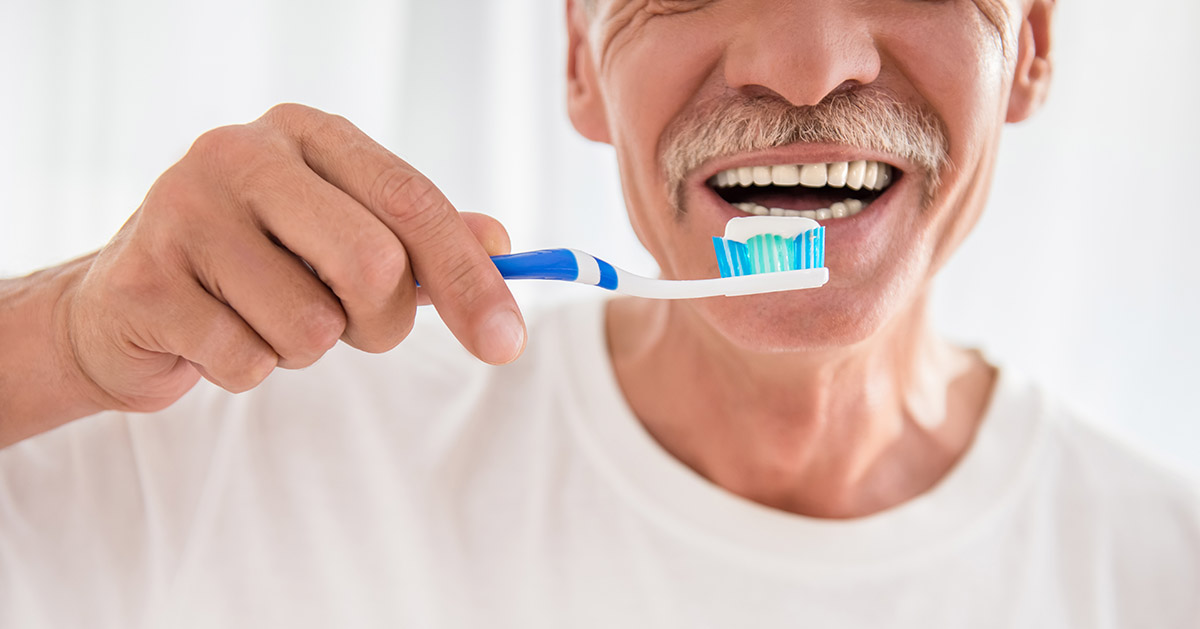At Tedford Family Dentistry, we have been helping residents of Ooltewah and the surrounding areas maintain healthy mouths for years. While we offer services that help to fix dental issues once they have already happened, we feel that it is more important for our patients to understand that the benefits of maintaining a preventative dental routine in order to decrease the number of dental issues that can arise during their lifetime. If you don’t take care of your teeth and properly manage your oral health, you may find yourself forking over thousands of dollars in restorative dental care. Did you know that a full mouth reconstruction can cost between $45,000 and $80,000? By practicing preventive dentistry, you can safeguard yourself from these exorbitant dental costs. In today’s blog post, we are going to go over some of the steps that patients can take to make sure that they are practicing proper preventative dental care.
Preventive dentistry emphasizes the importance of ongoing hygiene procedures and daily practices to prevent tooth decay and other dental diseases and conditions. This is achieved by patients making sure that their at-home oral care is properly addressing the daily needs of their gums as teeth while also combining regular visits to the dentist in order to make sure that issues that are harder to address at home (such as plaque and tartar build up) are taken care of before they become major issues.
The American Dental Association (ADA) recommends a minimum of two dental checkups each year for professional cleaning and management of any developing conditions. Following this recommendation can help your dentist stop dental disease in its earliest stages, protecting your smile and limiting your expense as it relates to your oral health.
Preventive oral care strategies include a number of in-office and home care activities. Some of these activities include:
At-home oral hygiene: The most important prevention technique is brushing and flossing at least twice a day (or after every meal) to remove dental plaque. If plaque is not removed, it can build up and produce dental tartar, a hardened, sticky substance with acid-producing bacteria that can cause tooth decay and lead to gum disease. Trust us, it is better to prevent tartar from accumulating than letting it take hold. Once the tartar has taken hold, it can only be removed by a dental professional.
Diet: A balanced diet is essential to overall oral health. Foods laden with sugars and carbohydrates feed the bacteria that produce dental plaque, while calcium-poor diets increase your chances of developing gum (periodontal) disease and jaw deterioration. We’re not saying that you have to be a health food fanatic but you do need to make an effort to eat food that is going to help your teeth rather than harm them.
Fluoride use: Fluoride strengthens teeth and prevents tooth decay. While you can visit the dentist for a fluoride treatment, it is not always necessary to get the recommended amount of fluoride each year. Fluoride has been added to tap water in most areas of the country so when you brush your teeth twice a day, you’re also receiving a fluoride treatment at the same time!
Regular dental visits: Visiting the dentist on a regular basis is one of the most important things a person can do in order to make sure that their oral health stays as good as possible. Because most dental conditions are painless at first, a person may not notice something is wrong until it gets to the point where pain occurs. For best results, schedule regular dental check-ups every six months. During this checkup, your dentist will remove any plaque or tartar that has built up, check for cavities, and generally make sure that your teeth, gums, and mouth are healthy. Additionally, your dentist should perform screenings for oral cancer to make sure that no abnormal tissue growth is happening on the gums or in the mouth.
Sealants: Sealants are thin composite coatings placed on the chewing surfaces of back permanent teeth. Sealants are most commonly placed on children’s permanent teeth when they develop, however, adults can also benefit from sealant treatment.
X-rays: X-rays enable dentists to look for signs of dental problems that are not visible to the naked eye, such as cavities between teeth and problems below the gum line. Even though your teeth may look perfectly fine at a glance, x-rays ensure that no problems exist below the gumline.
Avoid smoking and drinking: Chewing tobacco, smoking, and drinking have all been linked to problems surrounding oral health. These substances work to weaken the enamel of the teeth which leads to discoloration, cavities, tooth decay, and even oral cancer.
If you have any more questions about preventative dentistry or you would like to schedule an appointment at our Ooltewah office, please reach out to us today by giving us a call at 423.238.8887 or filling out our contact form.
If you ask most people how they feel about flossing, you are likely to be greeted with answers that are less than favorable. It seems that across the board, most people don’t enjoy flossing and even fewer people actually take the time to floss on a weekly, let alone daily, basis. Why is flossing such a tough sell for people? Mostly because it is time-consuming and can also lead to some uncomfortable feelings in the gums afterward. Despite the reluctance of the average person when it comes to flossing, we wanted to take some time in today’s blog post to go over the many reasons that flossing is one of the most important things a person can do in order to maintain good oral hygiene and reduce that amount of problems associated with bad oral health. Keep reading below to learn more!
In a world where it’s hard to believe anything that we are told at face value, many people may be wondering if flossing is actually worth it. After all, people tend to brush their teeth every day; shouldn’t that be enough? While brushing your teeth is an important component in maintaining good oral health, it is only the basest of activities that need to be completed in order to make sure that your pearly whites stay healthy. You see, brushing is great but it really only tackles the problems that are on the most easily accessible areas of a person’s teeth. Bacteria in the mouth are adept at finding nooks and crannies that are hard to reach, allowing them to take root and enjoy the plethora of sugars that find their way into our mouths every single day. When you floss, you are reaching areas of your mouth that a toothbrush just simply can’t. Cleaning out the areas in between teeth is one of the best ways to fight plaque build-up, which can lead to all sorts of nasty things, and improve the overall health of your mouth.
We can tell you all day about the benefits of flossing but we also want you to understand what can happen if you choose not to floss on a regular basis. When you don’t floss, you are at risk for two major dental issues: gingivitis and cavities between your teeth. Gingivitis is a common and mild form of gum disease that presents itself as irritation, redness, and swelling of the gum area that surrounds the base of a person’s teeth. If ignored, gingivitis can lead to a much more serious gum disease known as periodontitis and, eventually, tooth loss. In addition to gingivitis, people who do not floss are more likely to get cavities in between their teeth. If you have ever had a cavity, you know that they are not fun to deal with. A cavity in between the teeth is even worse. While flossing will not completely eliminate the risk of gingivitis and cavities, it goes a long way in protecting your mouth from these uncomfortable and potentially harmful oral maladies.
Ideally, a person would floss every single day. However, as dental professionals, we know that this does not always happen. Flossing at least once every few days, in addition to brushing your teeth at least twice a day, can go a long way in making sure that your mouth stays as healthy as possible. We’ve found that many people find it easier to get into a flossing routine if they purchase disposable, one-time-use flossers. These tools are easier to use than traditional dental floss and can be kept in a small container directly on the bathroom sink. If you’re looking to incorporate a flossing regimen into your daily oral hygiene routine, we suggest that you floss every time that you brush. Even though it takes a few extra minutes, we promise that the health benefits will be worth it.
If you have any more questions about oral hygiene or you need to schedule an appointment to have your teeth cleaned, please reach out to us at Tedford Family Dentistry today and schedule an appointment. We have been serving patients in the Ooltewah area for years and we would love to help you make sure that your mouth stays as healthy as humanly possible.

There are a few different things you can do to keep your natural smile looking it’s best. You’ve no doubt heard the expression “You are what you eat…”
Turns out, this is true, at least when it comes to the coloration of your teeth.
Because your teeth are porous, they naturally absorb the liquids that you drink. Avoid consumption of or exposure to products that are known to stain teeth, such as coffee, tea, sodas, grape or cranberry juice, popsicles, soy sauce, balsamic vinegar, tomato sauce, fruits and berries (blueberries, blackberries, cherries, pomegranates, etc.), and beets.
Making some adjustments can minimize the impact of these foods and beverages, including swishing your mouth with water after eating or drinking something (or, if practical, brushing and rinsing immediately after consuming), adding milk to coffee to lighten it’s color, choosing green tea over black tea, choosing light-colored sodas, drinking apple juice instead of grape or cranberry juice, avoiding popsicles with dark coloring, switching to light-colored or creamy sauces over deeply colored sauces, adding a lighter vinegar to salads, and adding greens like lettuce and broccoli that create a film on your teeth to prevent staining from occurring. You can also use a straw so the liquid from beverages that stain bypasses your front teeth.
Foods like beets are packed with good nutrients, but they stain everything they touch. You don’t need to skip foods high in antioxidants and vitamins that your body needs just to avoid staining teeth. Research suggests that gum disease accelerates and is potentially more severe in people with poor nutrition.
You DO want to consider eliminating sodas because of the artificial sugar and acid, which are terrible for the enamel on your teeth. Foods high in carbohydrates, sugars, and starches greatly contribute to the production of plaque acids that attack the tooth enamel. “Energy drinks” can erode enamel, so drinking water during workouts is a better alternative.
The color of a drink does not always dictate the full extent to which it can stain teeth. The dark, rich color of red wine makes it an obvious culprit, but white wine actually contains more damaging acid.
We recommend brushing your teeth at least twice daily and flossing at least once daily. Use a whitening toothpaste once a week only to remove surface stains, using your regular toothpaste the rest of the time.
Whitening may be more effective on yellowish teeth than brownish-colored teeth. Grayish-hue or purple-stained teeth present the biggest challenge. Blue-gray staining can require months of treatments. In some cases, veneers, bonding, or crowns may present a better choice than bleaching. It’s also important to note that teeth whitening is not permanent as patients may expose their brightened teeth to the same foods and beverages that stained their teeth in the first place. A touch-up treatment in 6 months or after a year or two may be needed.
Certainly! Tedford Family Dentistry helps our patients restore their gorgeous smiles with procedures such as teeth whitening, dental implants, dental veneers, cosmetic fillings, and contouring the shape of teeth.
Our professionally applied products meet ADA guidelines for safety and effectiveness. The first step to ensuring safe and effective us is a professional consultation. Call us at (423) 238-8887 to arrange a cosmetic dental appointment at our office at 9380 Bradmore Lane, Suite 108, Ooltewah TN 37363.
Photo: © Catalin205 / 123RF Stock Photo
Blog © 2019 Tedford Family Dentistry: Tedford Keith DDS | Ooltewah TN 37363
In our Ooltewah Dentist Office, we see patients who suffer from regular teeth grinding, also known as “bruxism.” Since stress is a major contributor to teeth grinding, we are dedicating this month’s post to suggestions to help you lower your stress levels.

Pain in the jaw from clenching teeth too tightly is bad enough, but stress can trigger many negative responses in our bodies, including headaches, high blood pressure, tense muscles, high blood sugar, heartburn, depression, and a weakened immune system. Here are a few ideas for getting your stress under control.
We’ve all felt stress and wished we could escape the pressures of modern life to experience complete relaxation like the people in those bath power commercials from the 70s and 80s, pleading, “Calgon, take me away…” The home is usually a sanctuary for taking a break from stressors, but this doesn’t work if the pressure comes from a growing credit card bill or a baby that won’t stop crying.
You don’t have to keep up the façade of being Superman or Wonder Woman around the house. If other members of the household aren’t pitching in, speak up and let them know ways they can help. Talk to your spouse or a child about cutting back or getting a job if their spending is making it more challenging to manage debt. Don’t be afraid to accept help from a support system of family and friends, especially if you are the primary caregiver for a child or an aging parent. Keep a stress diary to track what triggers episodes of clenching teeth and other symptoms.
It’s stressful knowing you’ve put on weight, aren’t getting enough activity, and not giving your body the nutrition it needs to perform at a normal level. You don’t have to hit the gym hard to experience changes. Simply walking around the neighborhood more often can make you feel more energetic and sleep better. Moderating your intake of stimulants like caffeine, nicotine, alcohol, and sugary foods can also help the nerves.
Whether it is a daily prayer or meditation, taking a short pause to look inward can lead to a feeling of gratitude and inner calm. Try mindfulness to shift your focus away from negative thoughts and anxiety. Yoga has been found to increase body and breath awareness, lowering cortisol levels, blood pressure, and heart rate. Soothing music and visits to the woods can also be very calming.
We’re all in favor of you showing off that beautiful smile. If watching a comedy takes your mind off stressors, make a date night of it. Light a scented candle if the aromas are pleasurable. Relish in social connections, including your church family, and take opportunities to cuddle, hug, and kiss when appropriate. A hobby like gardening may be enjoyable to you rather than hard work. A massage can alleviate physical pain from tense muscles. The companionship of a pet can also reduce stress, assuming your dog or cat behaves.
It’s easy to feel overwhelmed if you don’t know where to start. Sometimes getting a grip on stress is as simple as wrapping your head around what needs to get done to change things for the better. With an action plan, you can focus on doing something specific each day that removes or improves a stressful thing from your life, better manage your time, and stop procrastinating.
If you get riled up reading political posts on Facebook, don’t jump into debating someone whose views differ from your own. If something bothers you, limit your exposure to it. If coming to a dentist’s office for a regular cleaning fills you with dread, DO keep the appointment, but definitely let us know so we can find ways to alleviate those feelings when you arrive at our Ooltewah Dentist Office.
Easier said than done if you stress manifests as insomnia. As much as possible, give your brain time to calm down before going to bed and try to go to sleep at roughly the same time each day.
For many people, stress is synonymous with work: Making sure we get to the office on time, meet deadlines, say the right things to the boss. Earning a living doesn’t have to mean feeling miserable, though.
Easy enough, right? If your company offers paid vacation, it’s because it’s been proven that you’ll be more productive when you return from a bout of leisure. If you can’t afford a 2-week cruise to the Bahamas, find ways to do fun things closer to home. If you are feeling sick, your body needs time to rest so it can recover more quickly.
It’s easy to take on too much when we want to be liked at work and fear missed opportunities as a result, but you can find nice ways of letting people down gently and communicating when you are overburdened.
If you employ these strategies and feel relaxed yet still experience tenderness in jaw muscles, your dentist may use X-rays to detect temporomandibular joint (TMJ) disorders or other dental problems. A sleep study might assess whether episodes of teeth grinding are due to sleep apnea or another sleeping disorder. Splints and mouth guards that fit over the upper and lower teeth keep them separated to avoid damage from clenching and grinding. Another treatment for severe bruxism is Botox injections. In severe cases affecting a patient’s ability to chew properly, reshaping of a tooth or use of crowns may be needed to repair the damage.
These are a few of the common strategies people use to reduce their stress levels and address teeth clenching or grinding. Consult with a doctor if you have a medical condition or before starting new exercise routines. Consider visiting a licensed therapist or counselor if the bruxism is related to anxiety. Please feel free to ask Dr. Keith Tedford for ways to treat bruxism or other dental conditions. You can schedule an appointment at Tedford Family Dentistry by calling (423) 238-8887.
Photo: © Studio Grand Web / 123RF Stock Photo
Blog © 2019 Tedford Family Dentistry: Tedford Keith DDS | Ooltewah TN 37363
 We all want a more youthful appearance, especially as we approach middle-age and worry about getting passed over for jobs in favor of younger candidates or fear that we are losing our sex appeal. Millions of Americans fight to hide signs of the natural aging process with injections to tighten the skin and products to conceal gray hairs. One positive impact of cosmetic dentistry performed at our Ooltewah TN dental office is a more youthful appearance. For those with teeth in good condition, teeth whitening or dental veneers can give the illusion of a more youthful smile. For others who’ve lost teeth over the years, dental implants surgically positioned into the jawbone create a similar effect.
We all want a more youthful appearance, especially as we approach middle-age and worry about getting passed over for jobs in favor of younger candidates or fear that we are losing our sex appeal. Millions of Americans fight to hide signs of the natural aging process with injections to tighten the skin and products to conceal gray hairs. One positive impact of cosmetic dentistry performed at our Ooltewah TN dental office is a more youthful appearance. For those with teeth in good condition, teeth whitening or dental veneers can give the illusion of a more youthful smile. For others who’ve lost teeth over the years, dental implants surgically positioned into the jawbone create a similar effect.
Think back to when you were a younger person, perhaps in your twenties, with beautiful white teeth freshly aligned from wearing braces in your teens. Wouldn’t it be great to have those pearly whites again? Like the circles inside a tree marking the passage of time, the shade of the enamel on our teeth can reveal our age, even for those who’ve taken great care of their teeth, brushing and flossing daily and scheduling regular cleanings twice a year as recommended. It’s simply inevitable for teeth to stain as a result of aging, combined with tobacco use, years of drinking colas or coffees, eating acidic foods, or possibly as a result of some trauma experienced along the way. Teeth whitening at our Ooltewah cosmetic dentistry office lightens teeth and helps to decrease this discoloration. Another alternative is applying thin pieces of porcelain veneers to add strength and mask natural teeth that are chipped, stained, or worn-down over time.
Whitening is the cheapest and easiest way to make a smile look younger, says Bruce Seidner, a fellow at the Academy of General Dentistry. “However, not everyone can have their teeth successfully whitened. Sometimes a person's enamel or damage to the teeth make it difficult to achieve lasting results. In those cases, a veneer covering the tooth may be a better option,” Seidner told US News & World Report.
When simple teeth whitening and veneers fail to improve the look of teeth, dental implants become the next option if someone wants to avoid dentures, which can slip and not feel as natural. It’s important for surgically implanted teeth to match the tone of the surrounding teeth, if any, in order to appear natural. Missing teeth can cause a more “sunken-in” appearance and add wrinkles to the face. The effects of gum disease building over generations can impact the look of our smile as well and may require grafting to restore receded gums. It’s comforting to know that age doesn’t disqualify us from having a better smile.
No two people age in exactly the same way. Regardless of the condition of the mouth, we can always look better with some effort. With cosmetic dental procedures performed in Tedford Family Dentistry’s Ooltewah TN office, you can enjoy and embrace your age with a more confident, youthful smile that helps you compete for that job or win the attention of that special someone.
Dr. Keith Tedford can consult with patients who want to improve the appearance of their teeth and achieve a more youthful look. To meet with him and our staff, call us at (423) 238-8887 or stop by our office at 9380 Bradmore Lane, Suite 108, in Ooltewah TN to schedule an appointment with Dr. Tedford.
Photo: © GStockStudio / 123RF Stock Photo
Blog © 2018 Tedford Family Dentistry: Tedford Keith DDS | Ooltewah TN 37363
If you experience frequent jaw pain, headaches, migraine, or a painful sensation around your ear, you may have an inflamed TMJ, or temporomandibular joint. You might hear clicking or popping while chewing or talking if this condition affects you. In this blog, we’ll talk about the symptoms and possible causes of TMJ pain, how Dr. Tedford diagnoses the disorders, and how to treat TMJ and the jaw damage causing the painful symptoms.
 If you’re under a lot of stress, you may constantly clench or grind your teeth, which eventually damages the joint connecting the lower jaw to the bone on the side of the skull. You may not even be aware that you are doing this during the day in stressful situations or while asleep at night. This damage from putting pressure on the jaw usually rears its ugly head as the pain of headaches.
If you’re under a lot of stress, you may constantly clench or grind your teeth, which eventually damages the joint connecting the lower jaw to the bone on the side of the skull. You may not even be aware that you are doing this during the day in stressful situations or while asleep at night. This damage from putting pressure on the jaw usually rears its ugly head as the pain of headaches.
You can treat the condition by focusing on relaxation techniques, stretching exercises to ease the strain on muscles while exhaling and by using mouth guards to prevent jaw clenching. Pain relievers like ibuprofen or acetaminophen can help to manage the pain but their use should be limited to avoid possible side-effects like gastrointestinal bleeding.
Of course, you can experience pain in your jaw even if you’re a relatively relaxed person. TMJ pain can also result from arthritis as the surface of bones wears away, the connecting joint ligament becomes inflamed, or as a consequence of gum disease, neuropathic nerve pain, vascular pain, sinus conditions, or a condition called osteomyelitis that is essentially an infection in the bones and surrounding tissues. Whatever the cause, the result is suffering that lowers the patient’s quality of life. By the time TMJ is diagnosed, a lot of damage may already be done. That’s where Tedford Family Dentistry comes in to offer solutions from those patients suffering from TMJ/TMD disorders in the Ooltewah TN, Collegedale TN, greater Chattanooga, and Cleveland TN communities.
Of course, the occasional headache may have another cause, but if TMJ is suspected, Dr. Keith Tedford discusses symptoms and examines the jaw to observe the range of motion, identify specific sites of pain or discomfort, and listen as the mouth is opened or closed. Dental X-rays may be needed to inspect the bones and reveal problems. To arrange a visit to discuss your jaw pain, call (423) 238-8887. We can set up a time to visit our dental office at 9380 Bradmore Lane, Suite 108, Ooltewah TN 37363.
In addition to the relaxation techniques and mouth guard described above, the symptoms of TMJ disorders may be relieved with prescribed pain relievers and anti-inflammatories, low doses of antidepressants like amitriptyline that can sometimes be effective for TMJ, or short-term use of muscle relaxants. As mentioned on our dedicated page about TMJ/TMD Disorders, surgical procedures to treat the condition are typically only employed only after other treatments have failed.
The first step is to attempt the at-home treatments we recommend, then Dr. Tedford can repair the jaw damage for long-term dental care.
To arrange a visit to discuss your jaw pain with Dr. Keith Tedford, call (423) 238-8887 or email This email address is being protected from spambots. You need JavaScript enabled to view it.. This can be the year that he offers TMJ treatments that work for our patients in the Chattanooga, Ooltewah, Collegedale and Cleveland communities.
For more information on Treating TMJ:
https://medlineplus.gov/magazine/issues/winter10/articles/winter10pg15a.html
https://www.webmd.com/oral-health/guide/temporomandibular-disorders-tmd
https://www.medicinenet.com/temporomandibular_joint_syndrome_tmj/article.htm
https://www.healthline.com/health/tmj-exercises
Photo: © Nebari / 123RF Stock Photo
Blog © 2019 Tedford Family Dentistry: Tedford Keith DDS | Ooltewah TN 37363
 To ease anxiety during dental procedures, a mild form of sedation called Nitrous Oxide can be used. We are happy to explain the procedure, why it relaxes patients, and how it makes them feel.
To ease anxiety during dental procedures, a mild form of sedation called Nitrous Oxide can be used. We are happy to explain the procedure, why it relaxes patients, and how it makes them feel.
Among the benefits of its use are the reduction or elimination of anxiety in patients, enhancing patient communication and cooperation, raising the pain reaction threshold, making longer appointments more tolerable, aiding in the treatment of mentally or physically disabled patients, reduction of gagging, and general sedation.
Nitrous Oxide, commonly known as “laughing gas,” is a colorless, almost odorless gas, first discovered in 1772 by the English scientist and clergyman Joseph Priestley (who was also famous for being the first to isolate other important gases such as oxygen, carbon monoxide, carbon dioxide, ammonia, and sulfur dioxide). He hoped it would serve as a preserving agent, but with no success. Humphry Davy of the Pneumatic Institute in Bristol, England, experimented with the physiological properties of the gas, such as its effects upon respiration. He noted that it appeared “capable of destroying physical pain” and might serve as an anesthetic agent in minor surgical procedures.
Before widespread use for that purpose was adopted, “laughing gas” was primarily used recreationally, sometimes at carnivals where the public would pay to inhale the gas, laughing and acting silly until the euphoric effect wore off.
During one of these public nitrous oxide exhibitions, a local dentist named Dr. Horace Wells watched with interest as a man injured his leg while staggering into some nearby benches, then went back to his seat, unaware of his injury until the effects wore off. The next day, Dr. Wells inhaled the nitrous while another local dentist extracted one of his molars. Experiencing no pain during the procedure, he declared that a dental and medical painkiller was born, replacing the far more dangerous (and explosive) ether as an anesthetic. Ironically, Dr. Wells would later be given the accolade of discovering anesthesia, but he was shunned while demonstrating with a tooth extraction at Harvard Medical School in Boston after the patient expressed some discomfort. Never mind that the patient would have experienced excruciating pain without the use of the nitrous!
More than a century later, dentists now use Nitrous Oxide as a mild sedative and analgesic. It offers some degree of painkilling ability while reducing anxiety that patients may have toward dental treatment.
Use of laughing gas is not always effective because it requires the patient to breathe through the nose while his or her mouth is open to allow access to the teeth and gums.
Dentists today use laughing gas because it is safe and effective. Its use is mostly limited to professionals because it is a compressed liquefied gas and asphyxiation risk. The euphoria felt during use causes short-term decreases in mental performances and manual dexterity, as well as spatial and temporal disorientation. In other words, you’re fine inhaling it while comfortably seated during a dental procedure, but you don’t want to run a marathon or try to drive a racecar while huffing the stuff.
Nitrous oxide also depletes vitamin B12 levels, but this is generally not an issue when administered during a dental procedure. Nitrous oxide does have a negative environmental impact on the greenhouse effect, but this is primarily from natural emission from bacteria in soils and oceans, as well as the burning of fossil fuels. We also have to prevent room air contamination due to the occupational risks associated with prolonged exposure to the gas.
Like any substance producing euphoric states, laughing gas is susceptible to abuse. Many states have laws regulating the possession, sale, and distribution of nitrous oxide. Such laws usually ban distribution to minors or limit the amount of nitrous oxide that may be sold without a special license. Nitrous oxide/oxygen must be administered only by appropriately licensed individuals, or under the direct supervision thereof, according to state law. The practitioner responsible for the treatment of the patient and/or the administration of analgesic/anxiolytic agents must be trained in the use of such agents and techniques and appropriate emergency response.
According to the American Academy of Pediatric Dentistry, nitrous oxide exhibits a superior safety profile with no recorded fatalities or cases of serious morbidity when used within recommended concentrations. Nausea and vomiting are the most common adverse effects, seen in 0.5 percent of patients.
When reviewing whether your child is a suitable candidate for nitrous use, medical history is assessed. It’s important to tell us about:
Nitrous Oxide use has an excellent safety record precisely because it is used by trained personnel on carefully selected patients with appropriate equipment. The reason we ask questions during a procedure is to monitor a patient’s level of consciousness and to make sure the respiratory rate is suitable for normal breathing.
It's called "laughing gas" for a good reason. Reactions to dental anesthesia have been the stuff of memes. “David After Dentist” is the name of a YouTube video uploaded in January 2009 featuring a young boy’s reaction after a May 2008 dentist appointment. The clip is known for receiving more than 3 million views in three days, becoming YouTube's second most watched video of that year. After his surgery was completed, the youngster asked deep questions including "is this real life?" and "Is this going to be forever?" It was even spoofed in a Star Wars parody. A heavier form of sedation than nitrous oxide was likely used in this instance.
At the end of most procedures, we administer 100 percent oxygen once the nitrous oxide has been discontinued. This usually results in patients feeling like their normal selves again before leaving our office. We encourage patients to communicate about any residual disorientation and to wait additional time in the waiting room before attempting to drive if there are residual effects felt from the laughing gas. Also, maybe make sure the person taking you home promises not to record you on video and share it with the world unless you are a really good sport about that sort of thing.
Let us know if you or your child may benefit from laughing gas during a dental procedure. We are happy to discuss specifics at our office by calling (423) 238-8887 or scheduling an appointment to visit our family dentistry office located in Ooltewah, TN. We also serve Collegedale TN, Chattanooga TN and Cleveland TN communities.
Photo: © One Blink / 123RF Stock Photo
Blog © 2018 Tedford Family Dentistry: Tedford Keith DDS Ooltewah TN 37363
 Part of our mission for Chattanooga Preventive Dentistry is encouraging and educating patients to achieve a more balanced, healthy life in general. Poor nutrition affects oral health in ways that may not seem as obvious as usual culprits of gum disease or cavities.
Part of our mission for Chattanooga Preventive Dentistry is encouraging and educating patients to achieve a more balanced, healthy life in general. Poor nutrition affects oral health in ways that may not seem as obvious as usual culprits of gum disease or cavities.
It’s easy enough to grasp what’s good or bad for us, but how are we to actually put better eating habits to work? There are a few suggestions you may want to try if you’ve always wanted to eat better but weren’t sure how to make it happen…
How do you get the family to skip candy, cookies, and cake to instead munch on kale? Follow a process to gradually wean yourself of these unhealthy foods and replace them with healthier alternatives. It is important to always replace bad food with healthy food that you enjoy. For example, eat fruits as snacks, drink water instead of soda, eat whole grain bread instead of white bread, add steamed greens to dinner, focus on poultry and seafood while limiting intake of red meats, make homemade pizza instead of ordering, and snack on nuts like unsalted peanuts or raw almonds instead of potato chips. Berries can offer a sweet substitute to satisfy sweet cravings instead of sugar-loaded chocolate candy.
Regardless of how it is achieved, fruits and vegetables need to make up half of what is eaten daily, according to the U.S. Department of Agriculture. You don’t have to become a vegetarian to eat better, but you’ll end up healthier the more you transition away from sugary foods and starches to dishes that grow out of the ground instead of coming in a can. With these healthy eating guidelines, you can reduce your risk of enamel erosion and cavities to keep your smile looking healthier, plus you may just live longer too.
Photo: © Evgenya Amanenko / 123RF Stock Photo
Blog © 2018 Tedford Family Dentistry: Tedford Keith DDS Ooltewah TN 37363
Our seniors are precious and need special consideration to remain healthy. Dr. Tedford works to provide affordable senior dental services like dentures, implants, bridges, and more to the Ooltewah, Chattanooga, Collegedale, and Cleveland, TN communities. In fact, we have a dedicated page on this website to specifically address senior citizen dental care needs.
Readers can learn more about minimizing root decay that can lead to age-related gum loss and tooth loss. Lost Bone mass can also harm the jaw and increase the need for dental implants. Wear and tear related to time also impacts how well dentures fit. Decades of exposure to coffee, wine, and sodas show erosion of the dental enamel. Dr. Tedford assists seniors with routine dental care and cleanings, implants, dentures, veneers, bridges, and teeth whitening.
It’s important that our retirement years be spent comfortably, which includes retaining our ability to chew food correctly and without pain to nourish the body. Poor dental health can lead to problematic infections, according to experts at the University of Rochester Medical Center. Brushing teeth twice daily, flossing, and going for regular dentist checkups are recommended as part of a Consumer Reports Health Checklist for Seniors.
 It makes perfect sense that our teeth and gums require extra attention as we get older, the same as other health conditions complicated by age. Some of the unique situations affecting seniors:
It makes perfect sense that our teeth and gums require extra attention as we get older, the same as other health conditions complicated by age. Some of the unique situations affecting seniors:
And just because someone is of advanced age, that doesn’t mean we never see patients wishing to correct crooked teeth by getting fitted with braces or have teeth whitened. If someone has been sensitive about his or her smile for most of their life and now have the discretionary income to do it, why not?
Special care is needed when treating dementia patients who suffer from jaw, tooth and gum pain. It’s also a good idea to prepare a list before an appointment to tell Dr. Tedford during visits about all drugs taken by seniors, the dosage and how often these medications are taken. Such information can affect the recommended Senior Dental treatment plan.
Seniors are the primary consumers of dental products like dentures, bridges, and dental implants. The latter can be a great option following tooth loss, but the patient needs healthy enough gums and bone to hold an implant in place. Bone density loss is a significant concern for women age 65 and older in particular. Discuss this Dr. Tedford during the initial consultation before such a dental procedure happens.
Access to regular dental care is often difficult for seniors. Medicare doesn’t cover it, and Medicaid coverage is limited. Out-of-pocket expenses can be prohibitive to those on a fixed income. Most seniors must rely on either Medicare Advantage plans or private insurance to get coverage, but there are options.
Programs of All-inclusive Care for the Elderly (PACE) is a Medicare and Medicaid program that allows people 55 or older who otherwise need a nursing home level of care to remain in the community, covering dentistry, x-ray services, and other services. There are two PACE organization plans in Tennessee, both through Alexian Brothers Community Services.
The Senior Dental Care insurance program is available to most Medicaid recipients at no additional cost. Veterans may be eligible for dental benefits provided through the Department of Veterans Affairs (VA). Ask us about payment options such as payment plans and reduced prices based on need.
Dr. Tedford wants to help seniors keep their natural teeth longer and maintain good oral health so they can smile through their golden years. Call us at (423) 238-8887 or make an appointment to visit our office at 9380 Bradmore Lane, Suite 108, Ooltewah TN 37363.
Photo: © Vadim Gozhda / 123RF Stock Photo
Blog © 2018 Tedford Family Dentistry: Tedford Keith DDS Ooltewah TN 37363